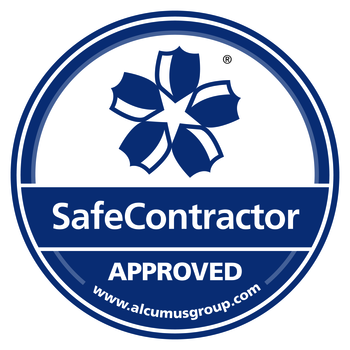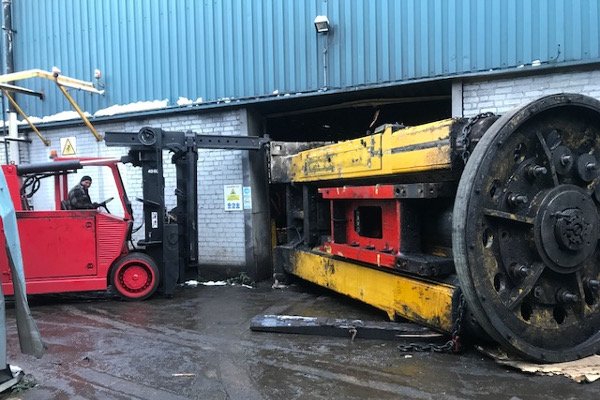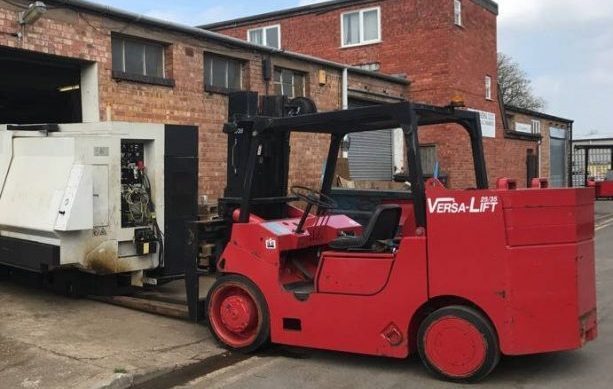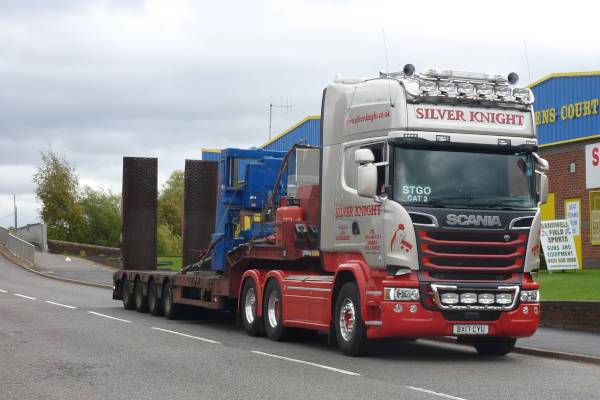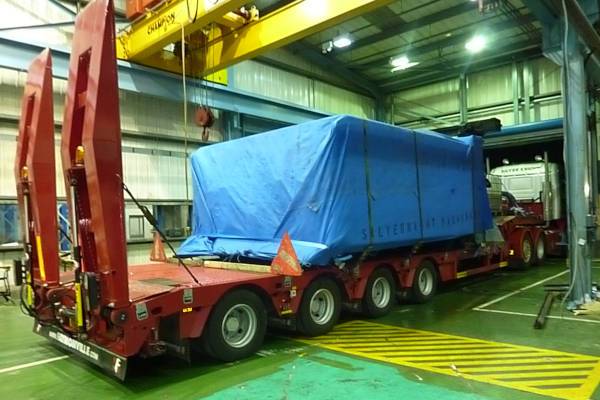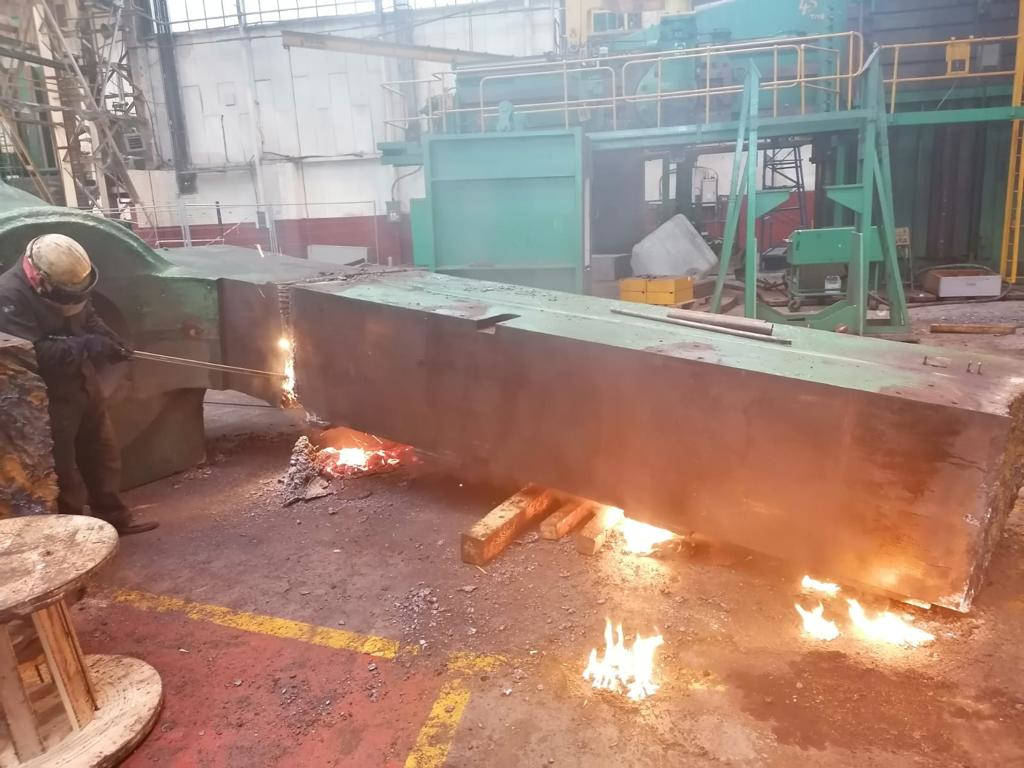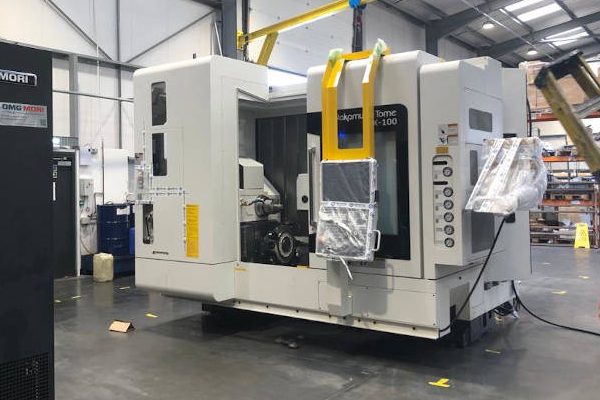What are some of the risks of a factory relocation?
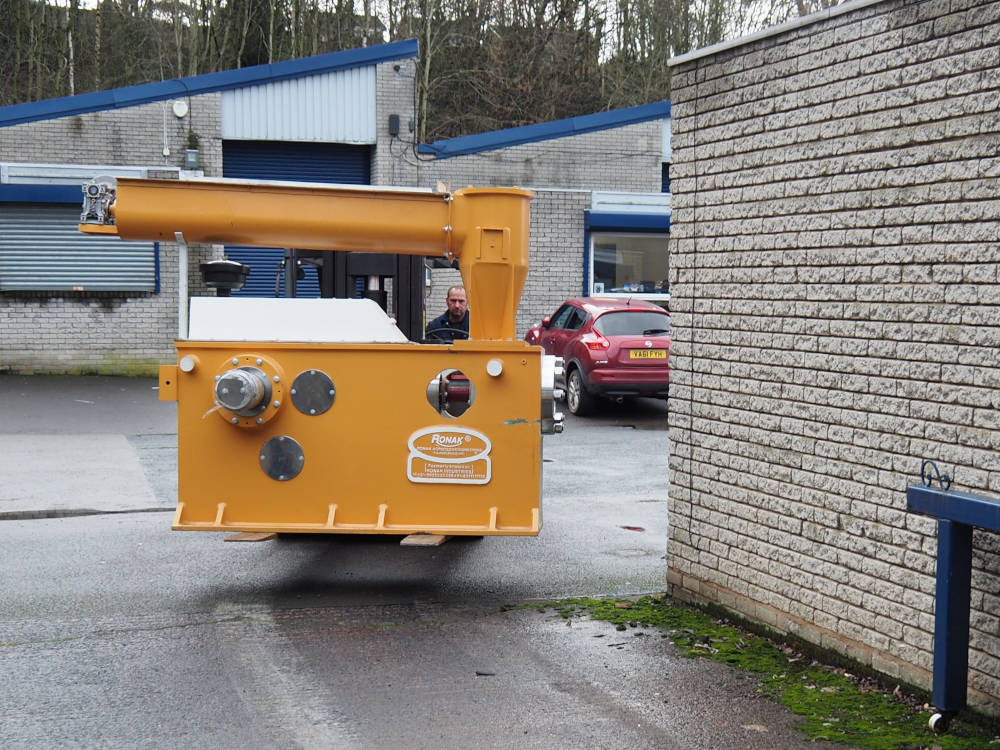 Factory relocations are a massive undertaking, not only due to the physical logistics; but due to the large number of factory relocation risks involved.
Factory relocations are a massive undertaking, not only due to the physical logistics; but due to the large number of factory relocation risks involved.Factory Relocation Risks Include
These risks range from:- Health and Safety concerns due to the danger to your staff and the relocation staff
- Damage to equipment
- Lack of knowledge
- Loss of revenue due to a downtime in productivity
- Environmental damage
- Physical space
- Moving logistics
- Working with the UK Transport Agency, Police Escorts, local authorities, & documentation
- Required documentation
- Difficulties of the relocation
- Specialised equipment required
Health and Safety concerns due to the danger to your staff and the relocation staff
Some factory machinery can weigh hundreds of tonnes, and the machinery required can be dangerous if not operated by a qualified individual. Consequently, moving the machines, even a few metres, can be extremely dangerous to life. Therefore, it is crucial that the individuals operating the machinery and those responsible for moving your machinery understand the risks. They must know the correct type of equipment required and, more importantly, have all the Risk Assessment Method Statements (RAMs) and health and safety documentation in place before starting any move. You can find out more about Risk assessments at this Wikipedia page.Damage to your equipment
Moving factory machinery is not only dangerous; but runs the risk of damaging your equipment, and repair costs can run into the millions of pounds to put right. Consequently, the movers need to understand the consequences of this and have the relevant insurance in place encase the worse occurs – especially when the machine needs to be relocated or placed in a difficult position.Lack of knowledge
A lack of knowledge is one of the worse issues to occur when relocating your factory or machinery. This is both a lack of knowledge in both management and the operators employed to do the relocation service. Consequently, if management doesn’t under the risks and processes involved in the move, the factory relocation operators should be able to advise to fill this knowledge gap – to ensure it goes smoothly and legally.Loss of revenue due to downtime in productivity
Moving a factory, or any machinery for that, can cause a loss of income. It’s not just about the potential risk of the machines getting damaged in or before transit. It’s also crucial to consider that these machines will be out of action during the move. Relocating a factory, involving moving equipment, raw materials, and finished products, can temporarily disrupt production. This disruption can lead to delayed shipments, decreased productivity, and reduced revenue. As a result, we need to manage this situation to keep any loss in productivity to an absolute minimum; otherwise, the cost could escalate even further.Environmental damage
Moving some machinery isn’t just a challenge regarding the logistics side of the move itself. Still, also regarding environmental damage because of the oils and other chemicals, the machines may hold. Consequently, not considering this at every step of the move can lead to costly clean-up operations and huge company fines. As a result, a machine moving company need to not only understand this and the consequences of this; but consider it at every step.Physical or lack of space
We have extensive experience working on machines that were never meant to be moved after they were first installed or that have had partition walls built around them in place. As a result, moving some machines might seem impossible. However, experienced relocation operators like us have the expertise to move these machines in special ways.Moving logistics
Sometimes moving the equipment onto a transporter is the simple bit, and often what can get overlooked is the transportation stage from one factory to another. Occasionally, we must complete special documentation and inform local authorities about road closures and special transport escorts. Experienced factory relocation operators have the knowledge and experience to ensure these angles are all fully covered. Working with the UK Transport Agency, Police Escorts, local authorities, & documentation. As part of our service and experience, we know how to work with police and government authorities regarding organising wide loads on UK roads, along with the documentation that transport machinery to and from the UK is required to pass border security controls. This experience can allow you to save time and money by allowing us to get the right documentation in place beforehand, thus not leading to costly delays while it is put in place later on.Increased costs
Moving a factory can be expensive, as it involves costs such as transportation, new equipment, labour, and training. Additionally, there may be hidden costs associated with relocating, such as lost productivity and downtime.Employee retention
Factory relocation can result in losing skilled employees; some may choose not to relocate. This loss can lead to a shortage of trained workers, decreased productivity, and increased training costs for new hires.Regulatory compliance
Relocating a factory may require compliance with new regulations, such as environmental and safety standards. Failing to comply with these regulations can result in fines, legal action, and damage to the company’s reputation.Supply chain disruption
Moving a factory can impact the supply chain, as suppliers and distributors may need to adjust their operations to accommodate the new location. This disruption can result in delays, increased costs, and a loss of business.Loss of customer base
Relocating a factory can result in losing customers, who may prefer to work with local suppliers. This loss can lead to decreased revenue and market share.Infrastructure challenges
Relocating a factory may involve challenges with the local infrastructure, such as inadequate transportation or power systems. These challenges can result in increased costs and decreased productivity.Required documentation
Moving equipment even a few metres – alone to another factory down the road or around the globe – isn’t just a case of jumping straight in. It requires all the necessary documentation to be in place first. We handle various documentation, including Risk Assessment Method Statements (RAMs), health and safety documentation, risk assessments, insurance company documentation, and internal processes. If required, we also manage the dismantling and installation documentation to ensure that the equipment can be safely reassembled at the other end and transported or stored in shipping containers en route, among other tasks.Difficulties of the relocation
Not all factory relocations are straightforward. Sometimes, other equipment that cannot be disturbed or risk being damaged during the relocation process is near the machines to be relocated. Other times the machines are in a place they were never designed to be removed from and have to be dismantled, or more creative solutions are required to complete the relocation. Consequently, these are the times that not only qualified operators are required but also heavily experienced operators to make sure the relocation goes smoothly.Specialised equipment required
On some occasions, the move is impossible without specialised equipment, and this equipment can be hard to come by. Consequently, you need operators who know what they’re doing and have all the required equipment in well-serviced condition.Why do companies relocate their factories?
Companies may relocate their factories for various reasons, such as to reduce costs, increase efficiency, access new markets, or take advantage of government incentives. Changes in business strategy, mergers and acquisitions, or consumer demand may also prompt a factory relocation.How long does it take to relocate a factory?
The time it takes to relocate a factory can vary depending on factors such as the size of the factory, distance to the new location, and complexity of the move. Typically, the process can take several months to a year or more.How much does it cost to relocate a factory?
The cost of relocating a factory can also vary widely depending on factors such as the size of the factory, distance to the new location, and the cost of labour and materials in the new location. According to some estimates, relocating a factory can cost between £50,000 to £1 million+ or more.What are the steps involved in factory relocation?
The steps involved in factory relocation may include assessing the current factory and new location, planning and budgeting, obtaining necessary permits and approvals, hiring movers and contractors, dismantling and packing equipment, transporting and setting up equipment, and testing and commissioning the new factory.How can companies mitigate the risks associated with factory relocation?
To mitigate the risks associated with factory relocation, companies can engage in careful planning and management, conduct thorough due diligence on the new location, communicate effectively with employees and stakeholders, support employees who are relocating, and ensure compliance with local regulations and standards.What are some common challenges associated with factory relocation?
Some common challenges associated with factory relocation include delays in production and shipments, increased costs, employee retention and training, regulatory compliance, supply chain disruptions, loss of customers, and infrastructure challenges.How can companies ensure a successful factory relocation?
Companies can ensure a successful factory relocation by planning and preparing, setting realistic timelines and budgets, communicating effectively with all stakeholders, identifying and addressing potential risks and challenges, and monitoring the process to ensure a smooth transition.Factory Relocation Risks Overall
Overall, factory relocation is a complex process that involves significant risks. Careful planning and management can help to mitigate these risks and ensure a successful transition.Do you require a company to help you with your factory relocation?
Suppose you need a company that understands the above to help you relocate your factory. Why not contact our specialised operators to discuss your requirements? We are here to help where we can.Our Services
About Our Services
Alongside our primary handling equipment services, we also offer Machinery dismantling, lifting equipment, lifting jacks, factory clearance and complete clean up, transporting heavy plant, removal of equipment from the site, machine hire service, UK and worldwide haulage, full documentation service, provide movement orders for abnormal loads, liaison with police and road network authorities, importing and exporting of machinery, container loading, open top containers and end loaders transport, full risk assessment and method statements, complete project management, and 24-hour call out.
We offer a comprehensive door-to-door service for machine installation. There’s no job too big or too small. Our services include machinery collections, including machinery auctions, dismantling, reconstruction, project installation, machines containerised and packing service; this is global. We have international movements. We provide various services, including heavy haulage, transportation of long loads, handling out-of-gauge loads, forklift and versa hire, mega lift operations, iron fairy crane hire, machine disposal service, and short and long-term storage facilities. In addition, we offer a trailer repair and modification service. We also undertake on-site fabrication services. We carry out site visits upon request.
Contact us for a
Safe Contractor Approved
